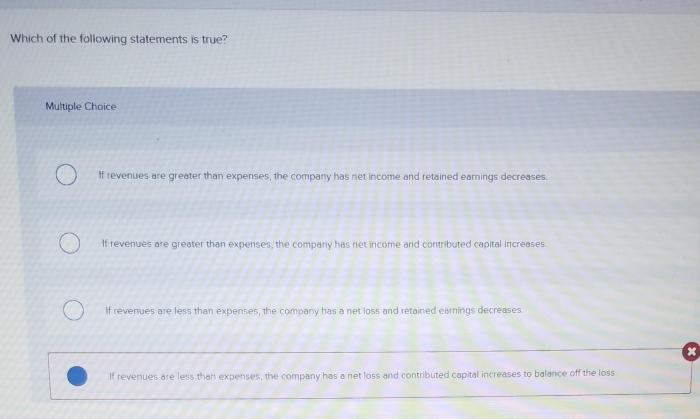Which of the following statements about power are true? This inquiry delves into the multifaceted nature of power, exploring its various dimensions, sources, and manifestations within social and political systems.
Through a comprehensive examination, we will uncover the intricate relationship between power and influence, shedding light on the mechanisms that shape decision-making and outcomes.
1. Power as a Concept

Power, a multifaceted and dynamic concept, is the ability to influence the behavior or decisions of others. It encompasses various dimensions, including authority, control, and influence. Sources of power range from personal qualities like charisma and expertise to institutional structures and economic resources.
Power plays a crucial role in social and political systems, shaping interactions, decision-making, and the distribution of resources.
Sources and Types of Power
- Personal Power:Stems from individual attributes like charisma, expertise, and reputation.
- Positional Power:Derived from formal roles or positions within organizations or institutions.
- Coercive Power:Relies on threats or force to influence others.
- Reward Power:Involves the use of rewards or incentives to gain compliance.
- Legitimate Power:Stems from authority recognized by others, often based on tradition, charisma, or law.
- Informational Power:Derived from access to and control over information.
Power in Social and Political Systems
Power is a fundamental aspect of social and political systems. It shapes social hierarchies, determines access to resources, and influences the allocation of power within society. Power dynamics play a critical role in maintaining social order, managing conflict, and facilitating cooperation.
2. Power and Influence

Power and influence are closely intertwined concepts. Influence refers to the ability to affect the behavior or thoughts of others without necessarily having formal authority. Mechanisms of influence include persuasion, coercion, and negotiation. Power dynamics significantly impact decision-making and outcomes, as those with greater power have a stronger ability to influence the actions of others.
Mechanisms of Influence
- Persuasion:Using communication and logical arguments to convince others.
- Coercion:Employing threats or force to compel compliance.
- Negotiation:Engaging in dialogue and compromise to reach mutually acceptable outcomes.
Power Dynamics and Decision-Making
Power dynamics play a significant role in decision-making processes. Those with greater power have a higher likelihood of having their preferences considered and implemented. However, other factors such as expertise, legitimacy, and group norms can also influence decision outcomes.
3. Power and Control: Which Of The Following Statements About Power Are True

Power and control are distinct yet related concepts. Power refers to the ability to influence others, while control involves the exercise of power to regulate or restrict the actions or decisions of others. Control can take various forms, including physical, psychological, and economic.
Forms of Control, Which of the following statements about power are true
- Physical Control:Using force or physical means to limit or restrict movement or actions.
- Psychological Control:Employing manipulation, coercion, or intimidation to influence thoughts and behaviors.
- Economic Control:Utilizing financial resources or economic leverage to control access to goods, services, or opportunities.
Ethical Implications of Power and Control
The exercise of power and control raises significant ethical concerns. Power can be used for both positive and negative purposes, and it is essential to ensure that power is used responsibly and ethically. The abuse of power or excessive control can lead to oppression, exploitation, and social injustice.
4. Power and Legitimacy
Legitimacy is the perceived rightfulness or acceptability of power. It is essential for the stable and effective exercise of power. Sources of legitimacy include tradition, charisma, and law. Legitimacy helps maintain social order by providing a framework for authority and reducing resistance to power.
Sources of Legitimacy
- Traditional Legitimacy:Based on long-standing customs, traditions, and social norms.
- Charismatic Legitimacy:Derived from the personal qualities and appeal of a leader.
- Legal Legitimacy:Stems from laws, regulations, and constitutional principles.
Legitimacy and Social Order
Legitimacy plays a crucial role in maintaining social order. When power is perceived as legitimate, it is more likely to be accepted and obeyed by the population. Legitimacy helps prevent conflict, promotes cooperation, and fosters stability within society.
5. Power and Resistance

Resistance to power is a natural and inevitable phenomenon. It can take various forms, including overt rebellion, nonviolent protests, and subtle forms of non-cooperation. Factors influencing resistance include oppression, inequality, and injustice.
Forms of Resistance
- Overt Rebellion:Open and organized resistance, often involving violence.
- Nonviolent Protests:Peaceful demonstrations, civil disobedience, and boycotts.
- Non-cooperation:Refusal to comply with orders or cooperate with authorities.
Factors Influencing Resistance
- Oppression:Excessive or unjust use of power, leading to widespread discontent.
- Inequality:Unequal distribution of resources, opportunities, or rights, fostering resentment and resistance.
- Injustice:Perceived unfairness or lack of justice in the exercise of power, motivating resistance.
Role of Resistance in Power Dynamics
Resistance plays a critical role in shaping power dynamics. It can challenge the legitimacy of power, expose abuses, and lead to changes in power structures. Resistance can also foster solidarity, empower marginalized groups, and contribute to social transformation.
FAQ
What is the difference between power and influence?
Power refers to the ability to control or influence the behavior of others, while influence involves the ability to persuade or motivate others without resorting to force or coercion.
What are the different sources of power?
Power can stem from various sources, including physical strength, economic resources, social status, knowledge, charisma, and legal authority.
How does power affect decision-making?
Power dynamics can significantly influence decision-making processes, as those with more power tend to have a greater say in shaping outcomes.